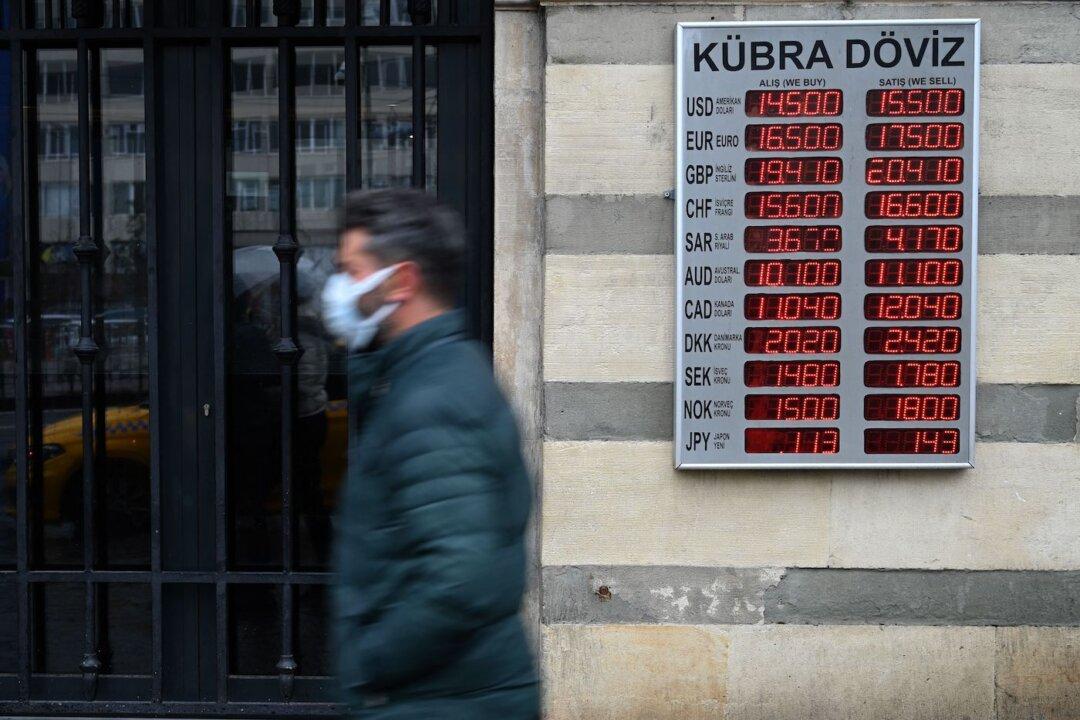The Turkish central bank is plowing ahead with more cuts to the national interest rate, even as the inflation of the Turkish lira continues to accelerate to unforeseen levels.
On Thursday, Turkey shocked markets when it announced a new interest rate cut that would reduce the benchmark to only 13 percent, after seven months in which the benchmark remained flat at 14 percent.





